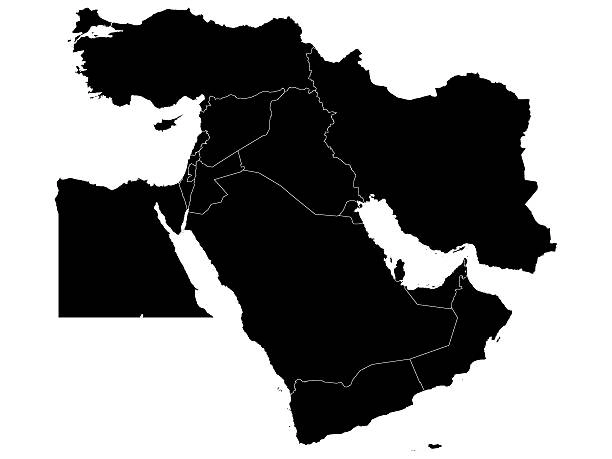40+
Tour Packages
- Home
- Tour Packages
- International Tour Packages
- Middle East
Middle East Tour Packages
- Heart of Ancient Trade Routes: The Silk Road
- Most Populous Country: China
- Richest Country: Qatar
South India’s Trusted Travel Experts
World’s Lowest Place
The Dead Sea
Second Flattest Country
Qatar
Tallest Building
Burj Khalifa
Largest Natural Flower Garden
Dubai Miracle Garden
Essential Tips for Travelling to the Middle East
- Pyramids : Pyramids and Petra are globally recognized as iconic historical landmarks.
- Exchange Rate : The Kuwaiti dinar holds the world’s strongest exchange rate today.
- Camel Race : Camel race remains a traditional sporting practice across Gulf nations.
- Dates : Saudi Arabia is among the leading global producers of dates.
- Hanging Gardens : The Hanging Gardens, an ancient wonder, were built in Babylon, Iraq.
- Archaeological-Sites : Jordan, a Middle Eastern nation, contains more than 100,000 archaeological sites.
Middle East's – Visitor Insights & Travel Overview

Total Annual Visitors
87.1 million
- Male 51%
- Female 49%
Top Visitors from India
- Chennai
- Delhi
- Hyderabad
- Pune
- Jaipur
- Mumbai
- Bengaluru
- Kolkata
- Ahmedabad
- Lucknow
Essential Facts and Insights About Middle East
The Middle East is a cultural and geopolitical concept introduced by the British in the 19th century. It belonged to a broader categorization that separated regions east of Europe. Areas closer to Europe, like the Ottoman Empire, Balkans, and West India (Afghanistan, Persia, etc.), were identified as the Near East. Distant regions near the Pacific such as Japan, China, and Vietnam were defined as the Far East. The territory between the Near East and the Far East became known as the Middle East.
Contact us at (+91 99404 63566 / +91 73973 56334) or message us on Instagram to receive a personalized itinerary for Asia Tour Packages
The Middle East is a transcontinental region that bridges Asia, Africa, and Europe. It is typically defined by countries in Western Asia and parts of North Africa. Core Middle Eastern nations include Saudi Arabia, the United Arab Emirates, Qatar, Kuwait, Bahrain, Oman, Jordan, Lebanon, Israel, Syria, Iraq, Yemen, and Turkey, while Egypt is also considered part of this region due to its geographical and cultural ties. Some broader definitions may include Iran, Afghanistan, and Cyprus. Positioned between the Mediterranean Sea, Red Sea, Arabian Sea, and the Persian Gulf, the Middle East is one of the world’s most strategically important and historically rich areas.
The Middle East covers diverse landscapes ranging from vast deserts to fertile valleys and rugged mountains. The Arabian Desert, stretching across Saudi Arabia, is one of the largest continuous deserts in the world. The region is also home to significant water bodies, including the Tigris and Euphrates rivers, the Dead Sea (the Earth’s lowest point on land), and the Persian Gulf, which is crucial for global oil trade. Mountain ranges such as the Zagros in Iran and the Taurus in Turkey highlight the region’s varied topography. Climate-wise, the Middle East is known for its arid and semi-arid conditions, though regions like Lebanon and northern Iran experience Mediterranean and temperate climates.
The Middle East is often regarded as the cradle of civilization, with Mesopotamia and Ancient Egypt serving as the birthplaces of agriculture, writing, and urbanization. It is also the origin of three major world religions: Judaism, Christianity, and Islam. Arabic is the most widely spoken language, though Persian (Farsi), Turkish, Hebrew, and Kurdish are also significant. Middle Eastern culture is deeply rooted in family values, hospitality, and traditions. Art forms such as intricate calligraphy, geometric patterns, and detailed architecture reflect centuries of influence. Music, poetry, and storytelling remain essential aspects of daily life.
Among the most visited destinations in the Middle East are:
United Arab Emirates (UAE): Known for Dubai’s modern marvels and Abu Dhabi’s cultural sites.
Turkey: Famous for Istanbul’s historic blend of East and West, Cappadocia, and ancient ruins.
Saudi Arabia: Increasingly popular due to religious tourism in Mecca and Medina, as well as new leisure attractions.
Egypt: Renowned for its pyramids, Nile cruises, and ancient temples.
Qatar and Oman: Attract visitors with luxury, heritage, and natural beauty.
Travelers are often drawn to vibrant and historically significant cities such as:
Dubai (UAE): A global hub for luxury, shopping, and futuristic architecture.
Istanbul (Turkey): The crossroads of Europe and Asia, filled with mosques, palaces, and bazaars.
Cairo (Egypt): Gateway to the pyramids and rich pharaonic heritage.
Mecca and Medina (Saudi Arabia): Spiritual centers of Islam.
Doha (Qatar): A rising star with modern museums and waterfront developments.
Muscat (Oman): Known for its coastal beauty and traditional souks.
While luxury often defines the Middle East, there are also budget-friendly travel options. Jordan offers incredible sites like Petra and Wadi Rum at reasonable prices. Egypt is among the most affordable destinations, with economical Nile cruises and local markets. Turkey balances affordability with world-class attractions in Istanbul, Cappadocia, and Pamukkale. Countries such as Oman and Lebanon provide cultural and natural experiences without heavy costs compared to luxury-driven hubs like Dubai or Doha.
Some of the region’s iconic attractions include:
The Pyramids of Giza (Egypt): Ancient wonders that continue to fascinate travelers.
Petra (Jordan): A UNESCO World Heritage Site carved into rose-red rock.
Burj Khalifa (Dubai): The tallest building in the world.
Hagia Sophia and Blue Mosque (Istanbul): Architectural masterpieces blending cultures.
The Dead Sea (Jordan/Israel): A unique natural wonder with buoyant waters.
Luxor Temples and Valley of the Kings (Egypt): Testament to ancient Egyptian civilization.
Festivals in the Middle East reflect both religious traditions and cultural heritage:
Ramadan & Eid al-Fitr (Across Muslim-majority countries): A month of fasting followed by joyous celebrations.
Hajj Pilgrimage (Saudi Arabia): One of the most significant religious gatherings in the world.
Nowruz (Iran and Kurdish regions): Persian New Year celebrated in spring.
Dubai Shopping Festival (UAE): A global shopping and entertainment extravaganza.
Jerash Festival of Culture and Arts (Jordan): Showcasing music, dance, and heritage.
National Day Celebrations (across Gulf nations): Marked with parades, fireworks, and cultural events.
Respecting cultural norms is essential when traveling in the Middle East:
Dress modestly, especially in conservative countries like Saudi Arabia, Oman, and Iran.
Always ask permission before photographing people.
Public displays of affection are discouraged.
Removing shoes before entering a mosque or someone’s home is customary.
Greetings often involve handshakes or a polite nod, but physical contact with the opposite gender may be restricted in some areas.
Tipping is appreciated but not mandatory in many places.
The Middle East is famous for its bustling souks, luxury malls, and traditional crafts. In Dubai, the Gold Souk and modern shopping centers like The Dubai Mall are must-visit spots. Istanbul’s Grand Bazaar is one of the oldest and largest markets in the world. Visitors to Egypt can explore Khan el-Khalili for spices, jewelry, and handmade items. Traditional carpets, perfumes, lanterns, and gold ornaments are among the most sought-after souvenirs. Luxury brands are also widely available in major Gulf cities, making the region a true shopping paradise.
Middle Eastern cuisine is diverse, flavorful, and rooted in tradition. Staples include grilled meats, rice dishes, fresh bread, and an abundance of spices. Popular dishes include shawarma, hummus, falafel, kebabs, tabbouleh, and mansaf. Desserts such as baklava, kunafa, and dates are widely enjoyed. In the Gulf, traditional Arabic coffee and dates symbolize hospitality, while countries like Lebanon and Turkey are known for their rich culinary traditions. The region’s food culture combines communal dining, fresh ingredients, and bold flavors, making it a highlight of any visit.
Popular Packages
Qatar Tour Packages
UAE Tour Packages
Dubai Tour Packages
Egypt Tour Packages
Visa Information
Check visa requirements before traveling, ensuring a smooth entry and compliance with destination regulations
Health and Safety Tips
Prioritize health, stay hydrated, follow safety guidelines, and maintain personal hygiene for a secure journey.
Currency and Tipping
Familiarize with local currency, consider customary tipping practices for respectful and seamless travel experiences.
Let’s Stay in Touch
- +91 99404 63566
- Info@tripbygenie.com
Book Your Dream Vacation Today!

